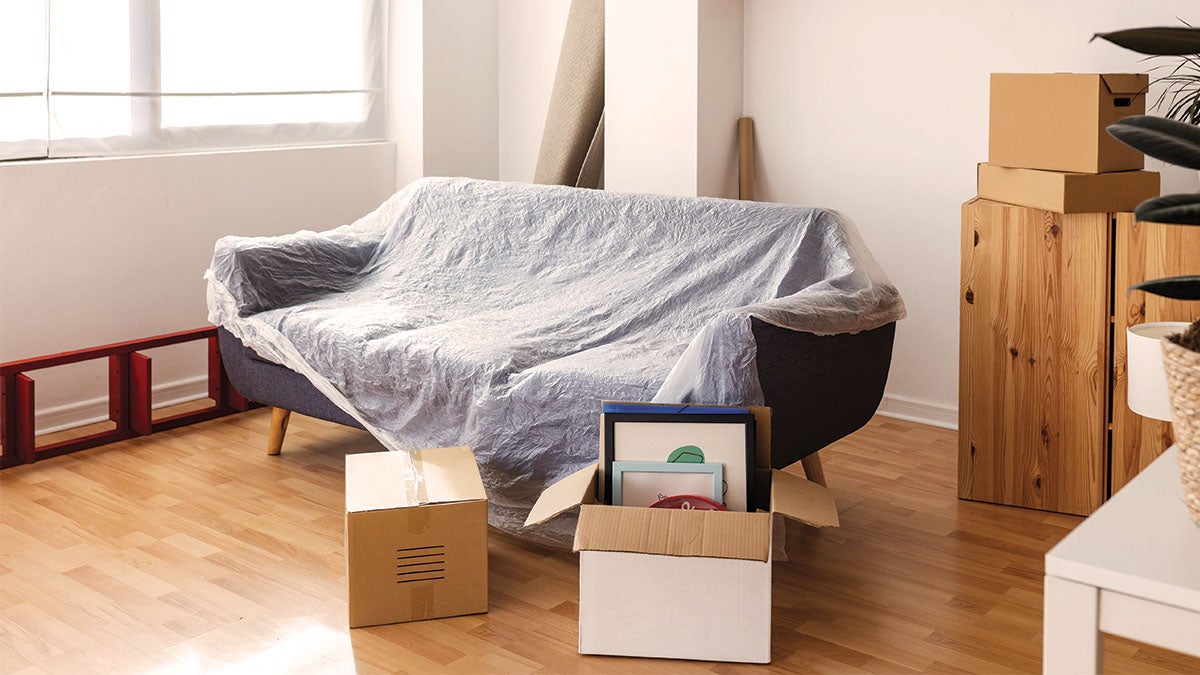Donating furniture, especially couches, holds significant importance beyond just clearing out space at home. It’s about making a practical difference for the environment and those in need. Instead of tossing out a couch, donating it can mean reduced waste and helping communities.
By donating, we're actively doing our part to cut down on waste and make a positive impact. Plus, for someone else, that couch could be a game-changer—a chance to have something comfortable and functional when they might not have had that option before.
Reasons for donating a couch
When it comes to getting rid of a couch, the way we dispose of it significantly impacts the environment. Donating a couch instead of tossing it out reduces the burden on landfills and lessens the environmental strain caused by excessive waste.
Donated couches can make a world of difference to individuals or families in need. For those facing financial hardships, having access to comfortable furniture like a couch can improve their quality of life. It offers a cozy sanctuary to those who might not otherwise have them.
Donating your couch helps charitable organizations and thrift stores in their missions to support their local community. If you donate your couch to these organizations they may have more opportunity to sell the couch to raise funds to support their purpose. The proceeds often go back into community programs or initiatives that assist those in need, creating a positive cycle of support.
Where to donate a couch
Many local charities and nonprofits accept furniture donations. Organizations such as Habitat for Humanity ReStore often have specific procedures for donating furniture. They sometimes provide pickup services on specific days and times. They have a Donation Guide of what items they accept and other recycling or disposal services.
Thrift stores and second-hand shops are also great options for donating couches. Places like The Salvation Army or Goodwill often welcome furniture donations. They typically have guidelines for donations, ensuring the items are in usable condition, and may offer pick-up services or specify drop-off locations.
Step-by-step guide to donating a couch
- Research different donation centers or organizations in your area. Look for ones that align with your values and accept furniture donations. Consider their donation guidelines and whether they offer pick-up services or require drop-off.
- Contact your chosen donation center/organization directly. Initiate the conversation by explaining your intention to donate a couch. Be clear about the condition of the couch and inquire about their donation process, including any specific requirements they might have.
- Schedule a convenient time for pick-up or drop-off. Coordinate with the organization to finalize logistics, such as the date, time, and any specific instructions they may have for preparing the couch for donation.
- Ensure you have any necessary paperwork or forms prepared. Some organizations might require a donation receipt or documentation for tax purposes. Fill out any required forms accurately to facilitate a smooth donation process.
- Prepare your couch for donation. Follow our comprehensive instructions below to ensure your couch is set up well for its second life in a new home.
If these steps get too complicated or if you run into a roadblock trying to find a local charity that will accept your couch, try calling 1-800-GOT-JUNK? to see whether we can handle the donation process for you. Depending on your location, 1-800-GOT-JUNK? may be able to organize a drop-off with one of the local charities we work with.
You could ensure your couch is donated to a good cause without having to manage the research, organizing, paperwork, and hauling. Book now!
Preparing your couch for donation
Cleaning and sanitizing the couch is crucial before donation. Use a mild detergent or upholstery cleaner to remove stains or dirt. Vacuum the couch thoroughly to eliminate dust, and consider using a fabric freshener to eliminate odors.
Prior to donation, carefully inspect the couch for any damages. Check for tears, broken frames, or missing parts. If there are minor damages, consider repairing them to ensure the couch is in usable condition for its new owner.
If needed, disassemble the couch according to its design. Keep track of screws or parts and store them securely. Properly package any detached parts to avoid misplacement or damage during transportation. Use suitable wrapping materials to protect the couch during transit.
Tips for a smooth donation process
Clear communication is key when dealing with the donation center or organization. Be concise about your donation, including details about the couch and any preferences you may have. Pictures of the couch and its location can be very helpful for charities. Ask questions and clarify any doubts to ensure mutual understanding.
Consider logistics carefully. If you're transporting the couch yourself, ensure you have the appropriate transportation and manpower to move it safely. You may have to phone a friend! If the organization offers pick-up services, confirm details such as access points, parking, or any specific requirements for the pickup like how many flights of stairs they may need to take the couch through.
Keep records of your donation for tax purposes. Obtain a receipt or any necessary documentation from the donation center/organization. These documents are vital for claiming deductions on your taxes, so store them safely for when you file your taxes.
Responsible disposal alternatives for unusable couches
When faced with old or unusable couches, consider recycling options. Contact local recycling centers or facilities that specialize in furniture disposal. Some centers may dismantle and recycle various components of the couch, such as wood, metal, foam, and fabric.
For irreparable couches that cannot be salvaged or recycled, seek environmentally friendly disposal methods such as recycling options. Contact waste management services or facilities that offer responsible disposal options, ensuring these couches don't end up in landfills and are managed in an eco-conscious manner.
If you need to talk to someone to understand whether your couch or furniture items can be donated, 1-800-GOT-JUNK? can ensure your furniture is disposed of responsibly. If you give us a call, we’ll be happy to help you figure out your next steps.
Couch donation FAQs
Can I donate a couch that has minor damage?
Yes, many donation centers accept couches with minor damages, as long as they are still functional and in decent condition. It's advisable to communicate with the donation center beforehand to confirm their policies regarding slightly damaged furniture.
What do donation centers usually accept?
Donation centers typically accept various types of furniture, including couches, sofas, armchairs, tables, and dressers. However, acceptance may vary based on the center's specific guidelines and the condition of the items. Contact the center directly or visit their website to check their donation criteria.
Are there any tax benefits to donating furniture?
Yes, there can be tax benefits associated with furniture donations. If you itemize deductions on your taxes, you may be eligible to claim the donated furniture's fair market value as a deduction. Ask your local donation center if they offer tax receipts for your donations. It's recommended to keep documentation, such as a receipt or acknowledgment from the donation center, to substantiate your donation for tax purposes.
Conclusion
Responsible couch donation involves several key steps: researching donation centers, communicating effectively, preparing the couch for donation, scheduling pick-up or drop-off, and ensuring proper documentation. Following these steps, individuals can contribute to meaningful causes while responsibly disposing of their furniture.
Consider the impact of your actions and the potential benefits of donating furniture to those in need. Your decision to donate a couch could provide comfort to someone less fortunate while reducing environmental strain. Learn more about your carbon footprint and take a step toward making a difference by considering furniture donation as a way to support charitable causes and create positive change in your community.
Additional resources
Links to donation centers or organizations:
Further reading on responsible furniture disposal:
- The Power of a Small Gesture: Mahnoor's Story
- The Furniture Bank of Central Ohio’s Hear Our Families’ Stories of Hope video
- How much does it cost to furnish a home?
Don’t forget to…
- Share your donation experiences: Your donation journey can inspire and guide others. Share your experiences of donating furniture or items to local centers or organizations. Your story could encourage and assist someone else in making a positive impact.
- Consider donating other items: Take a moment to reflect on the items you no longer need but could benefit others. Consider donating mattresses or other items to local charities or organizations that support those in need. Your donation can make a significant difference in someone else's life.






